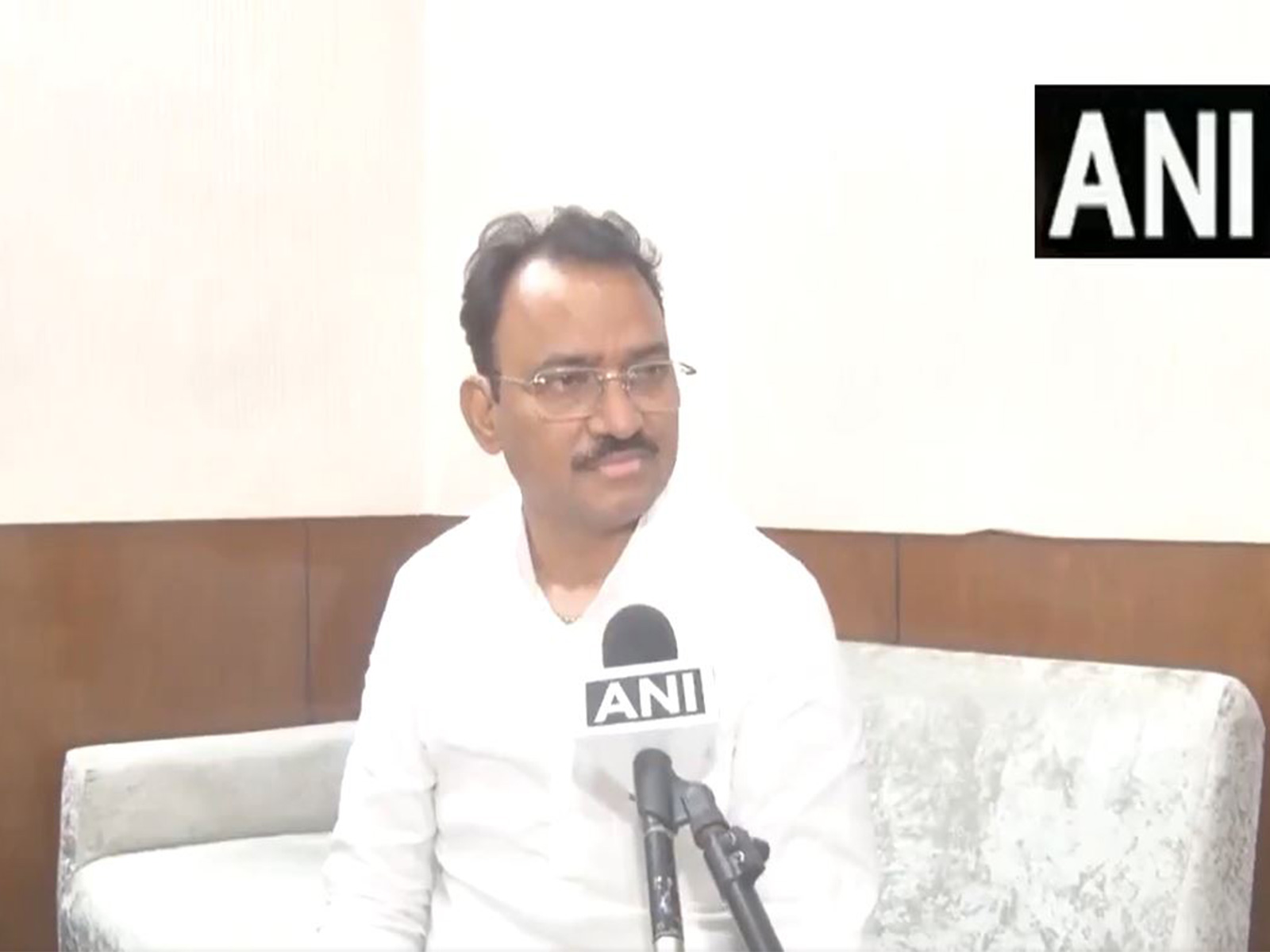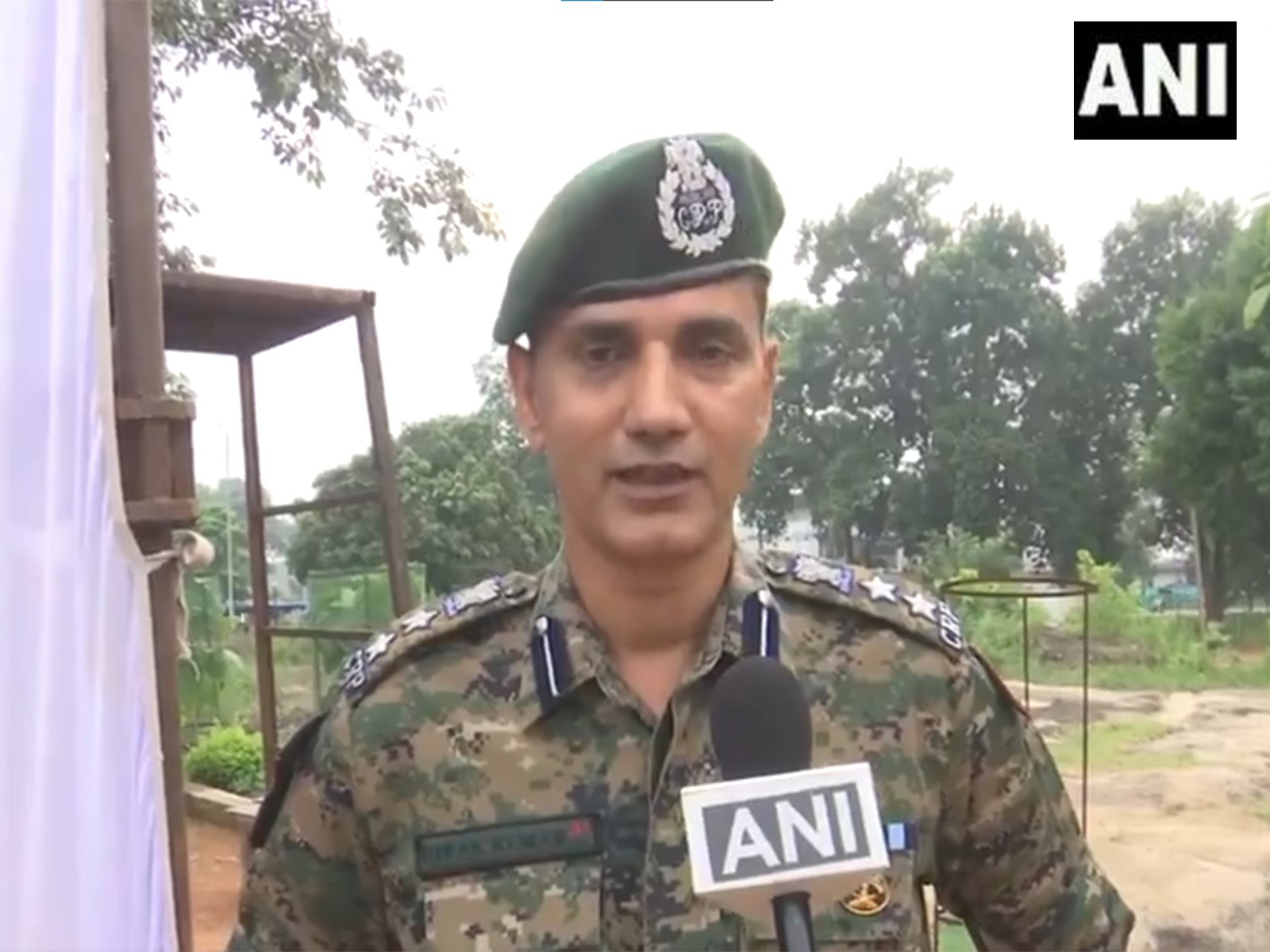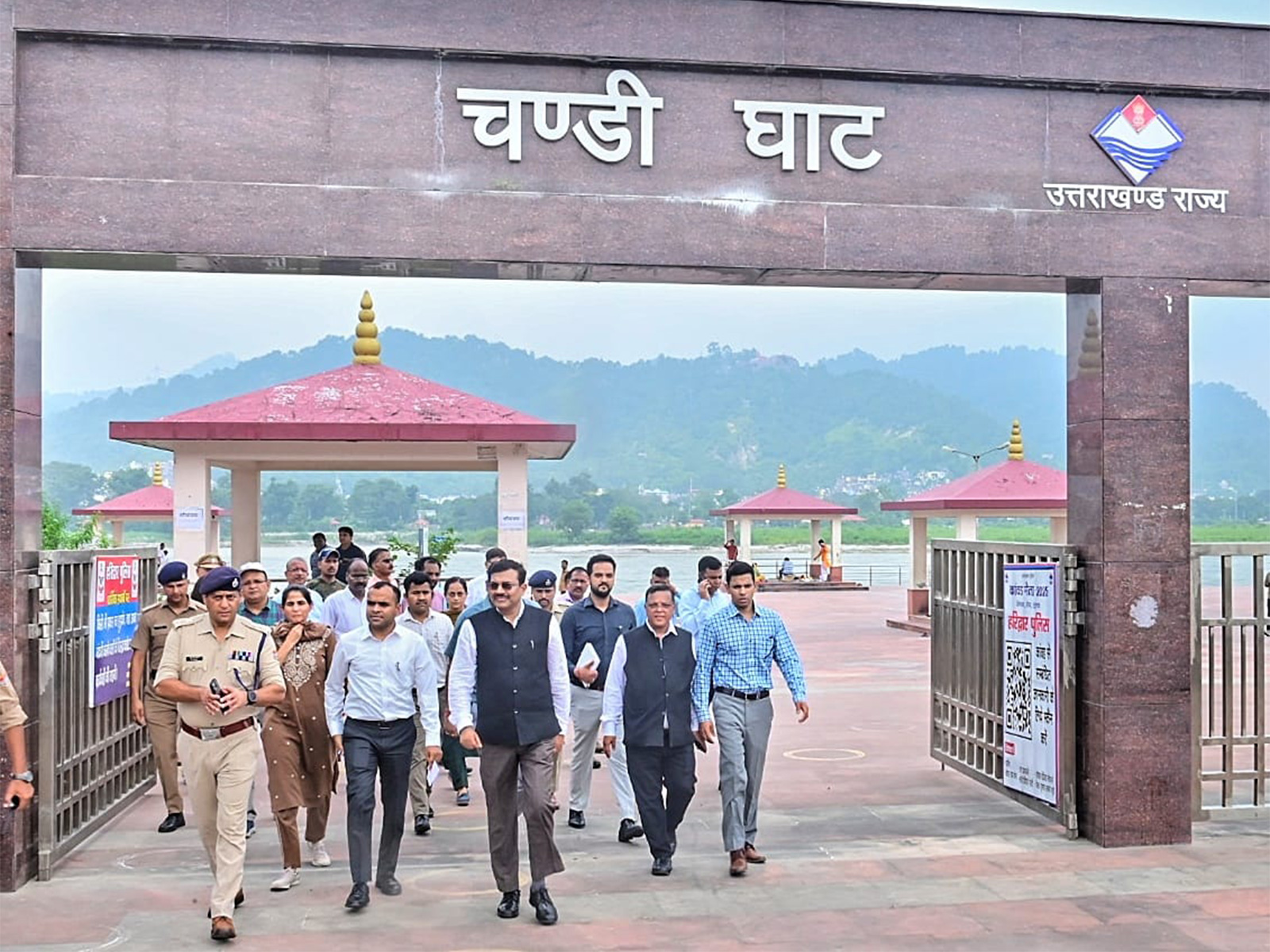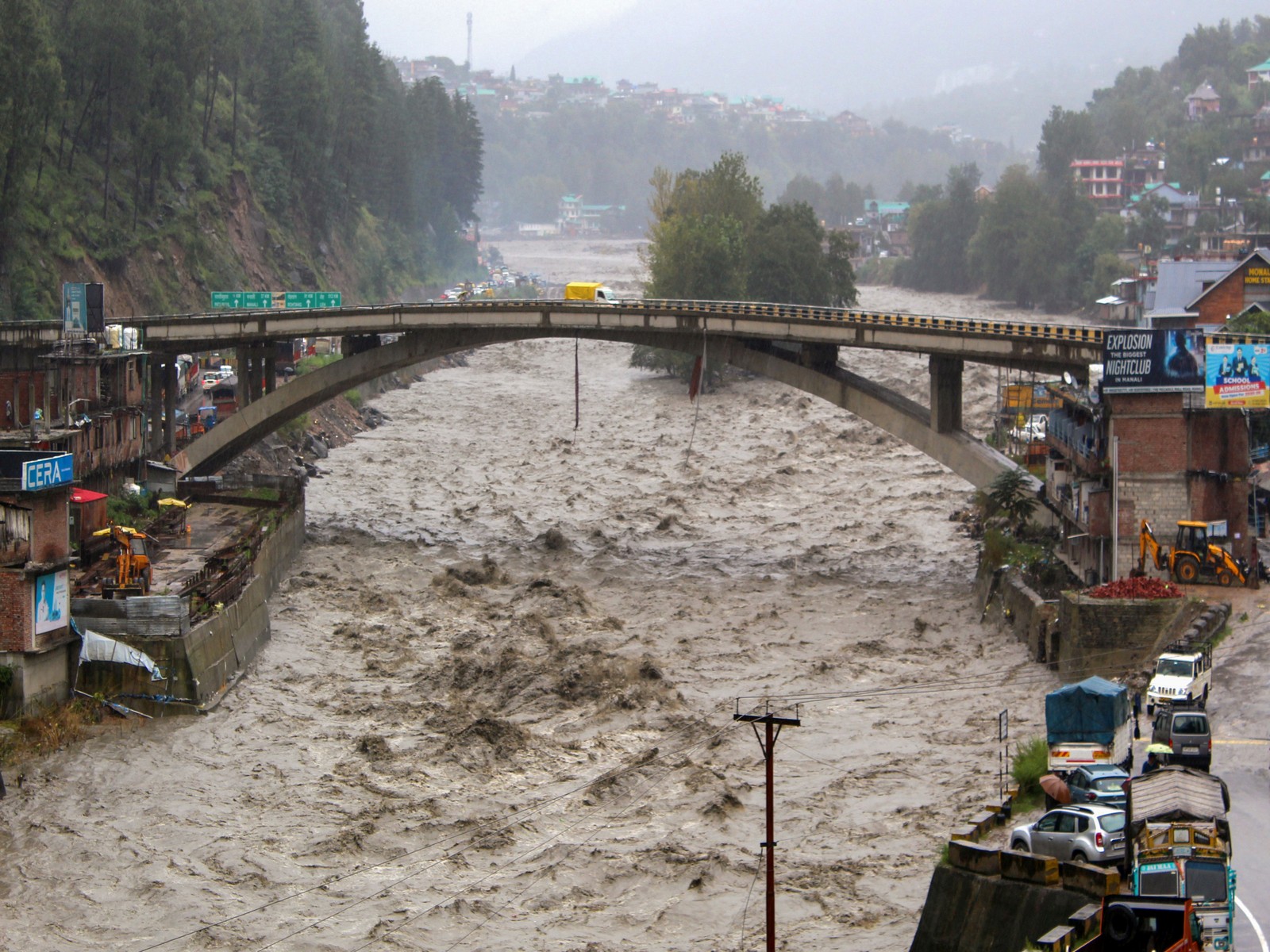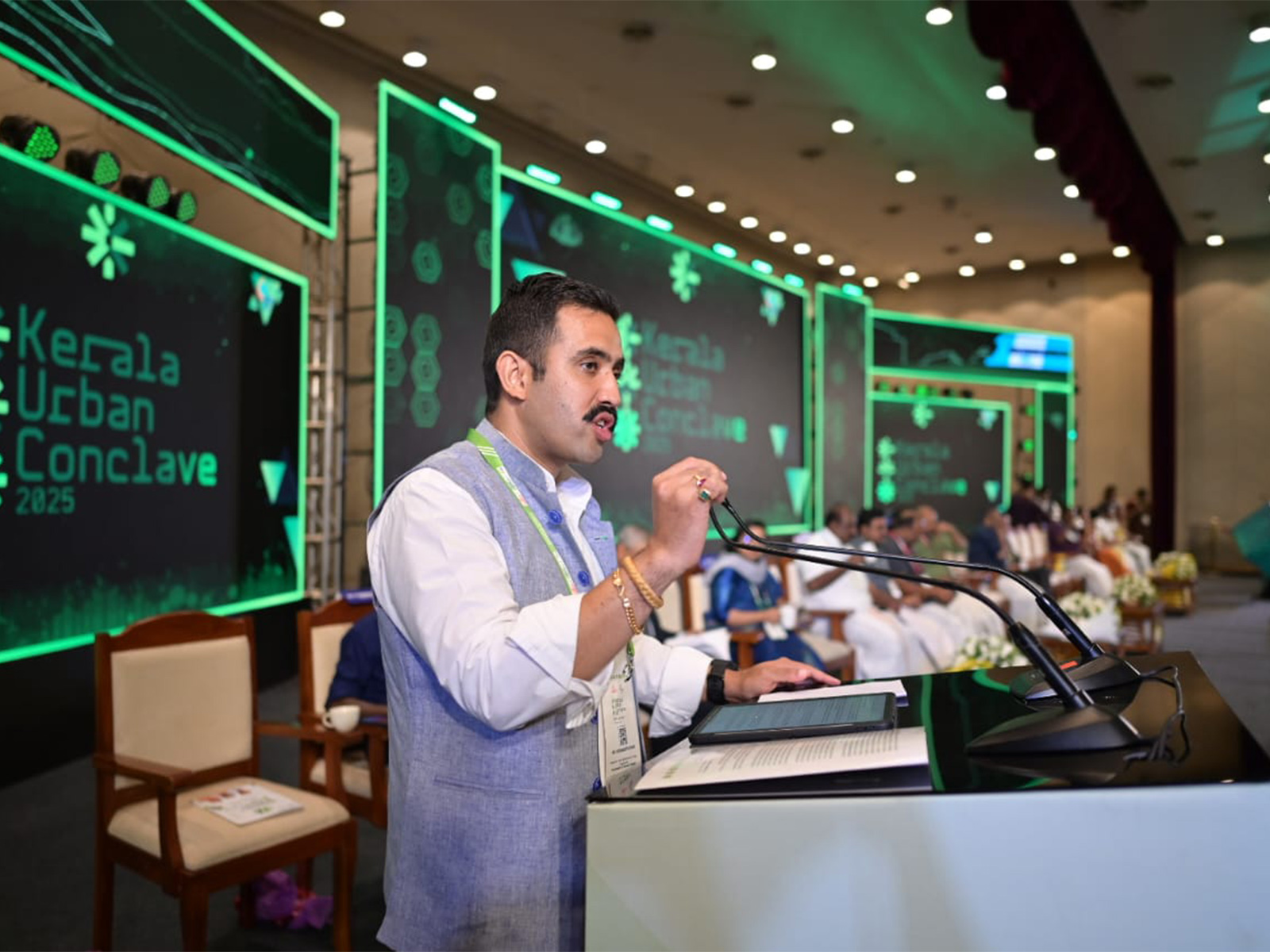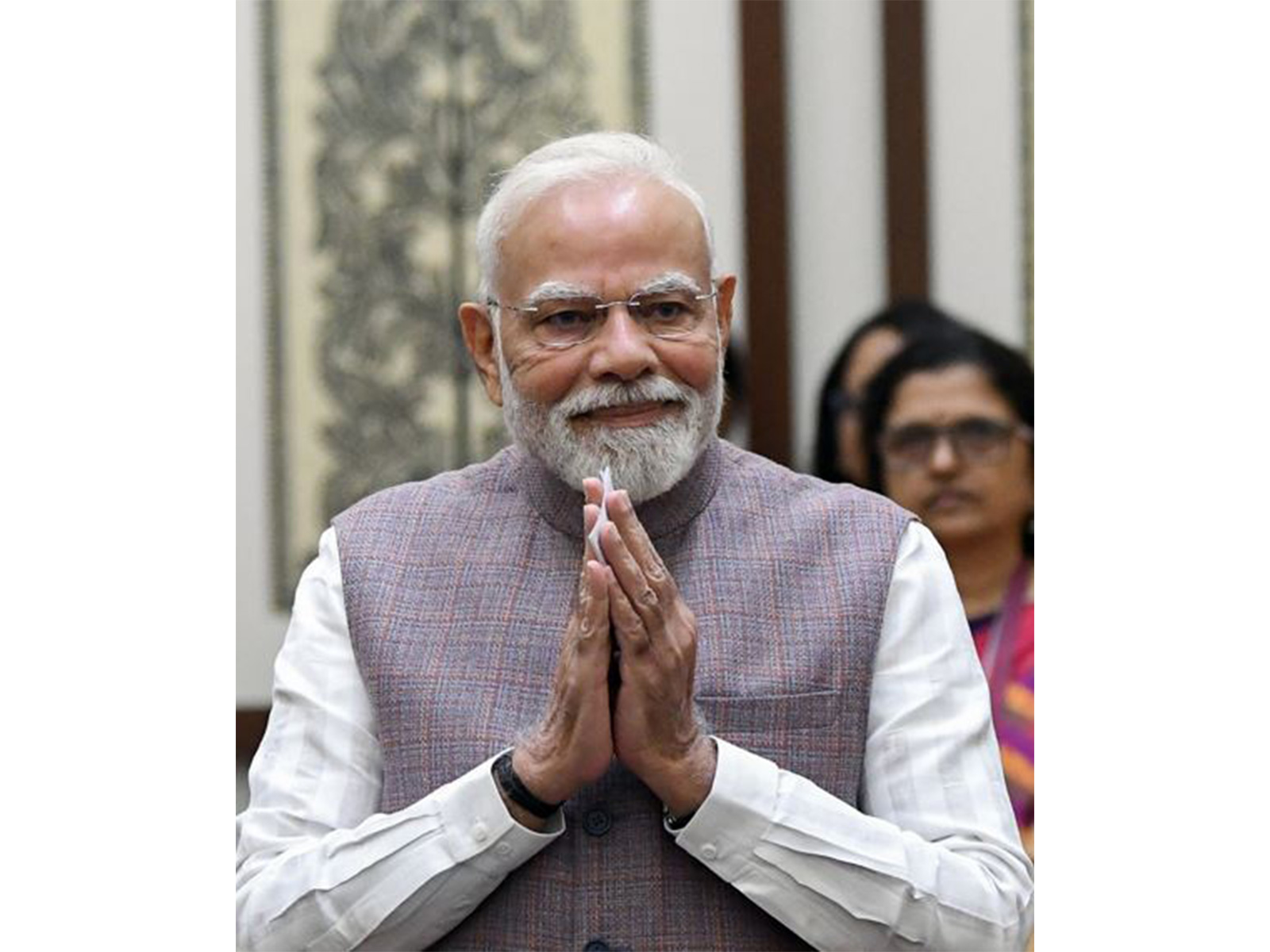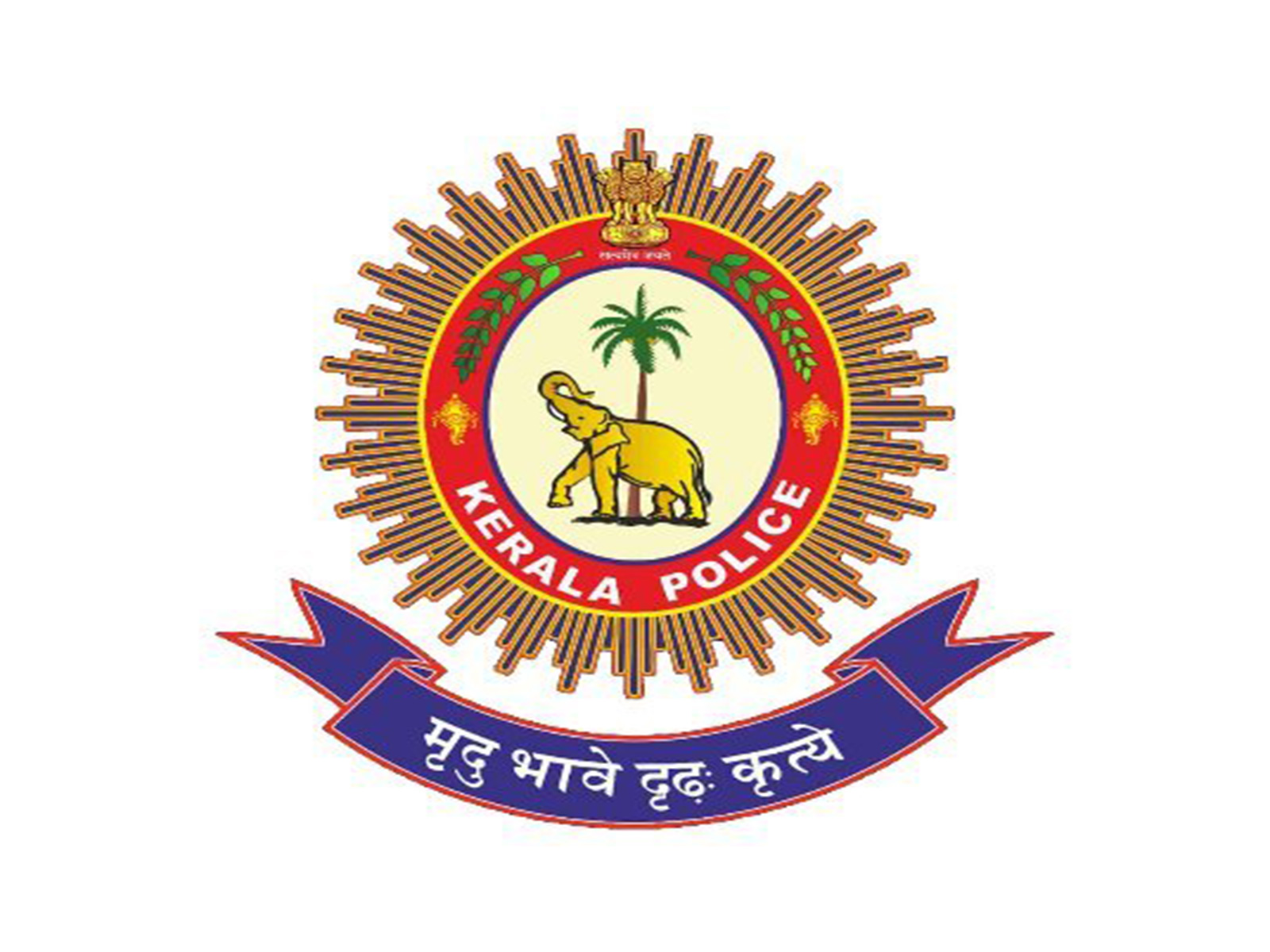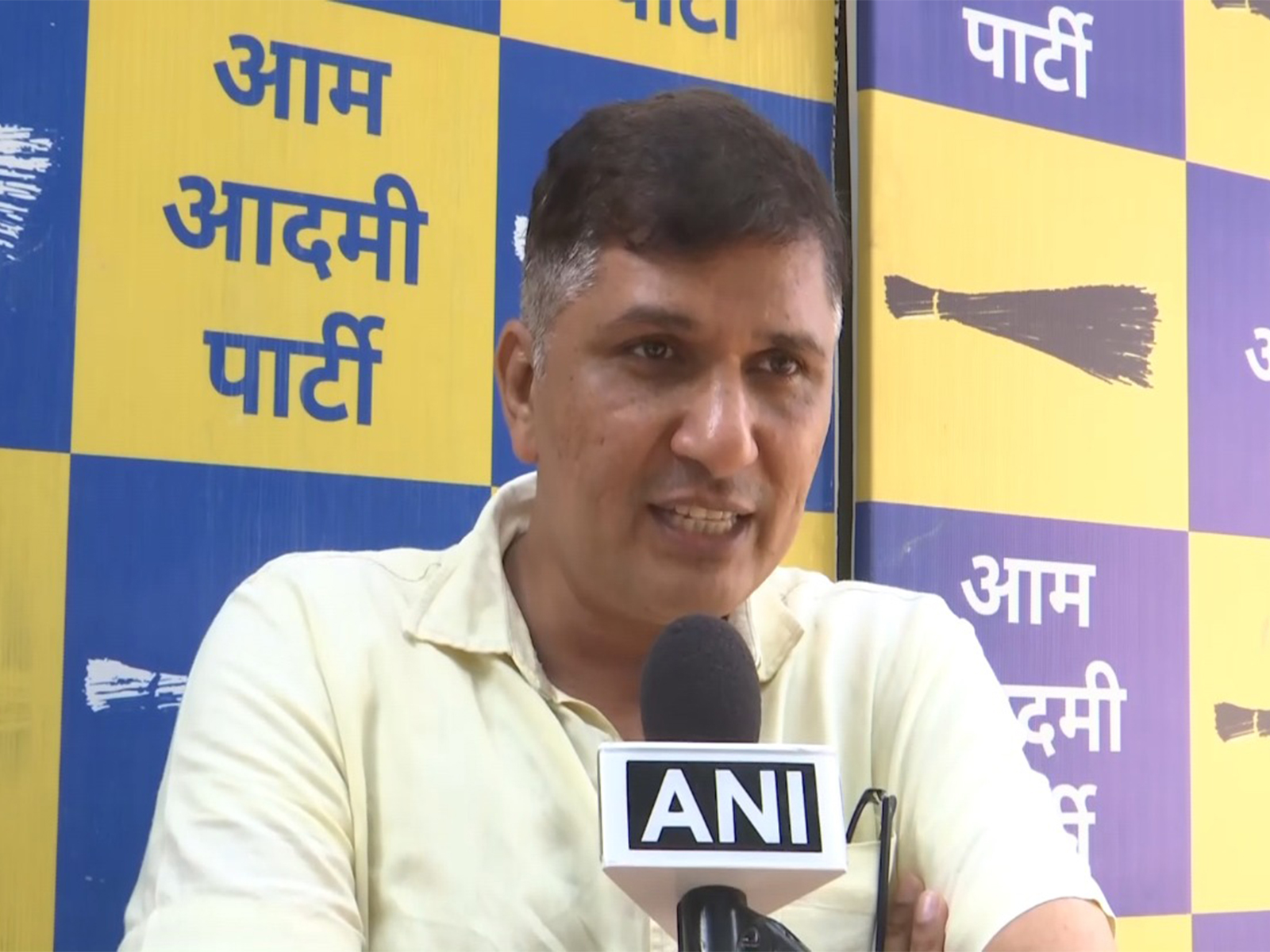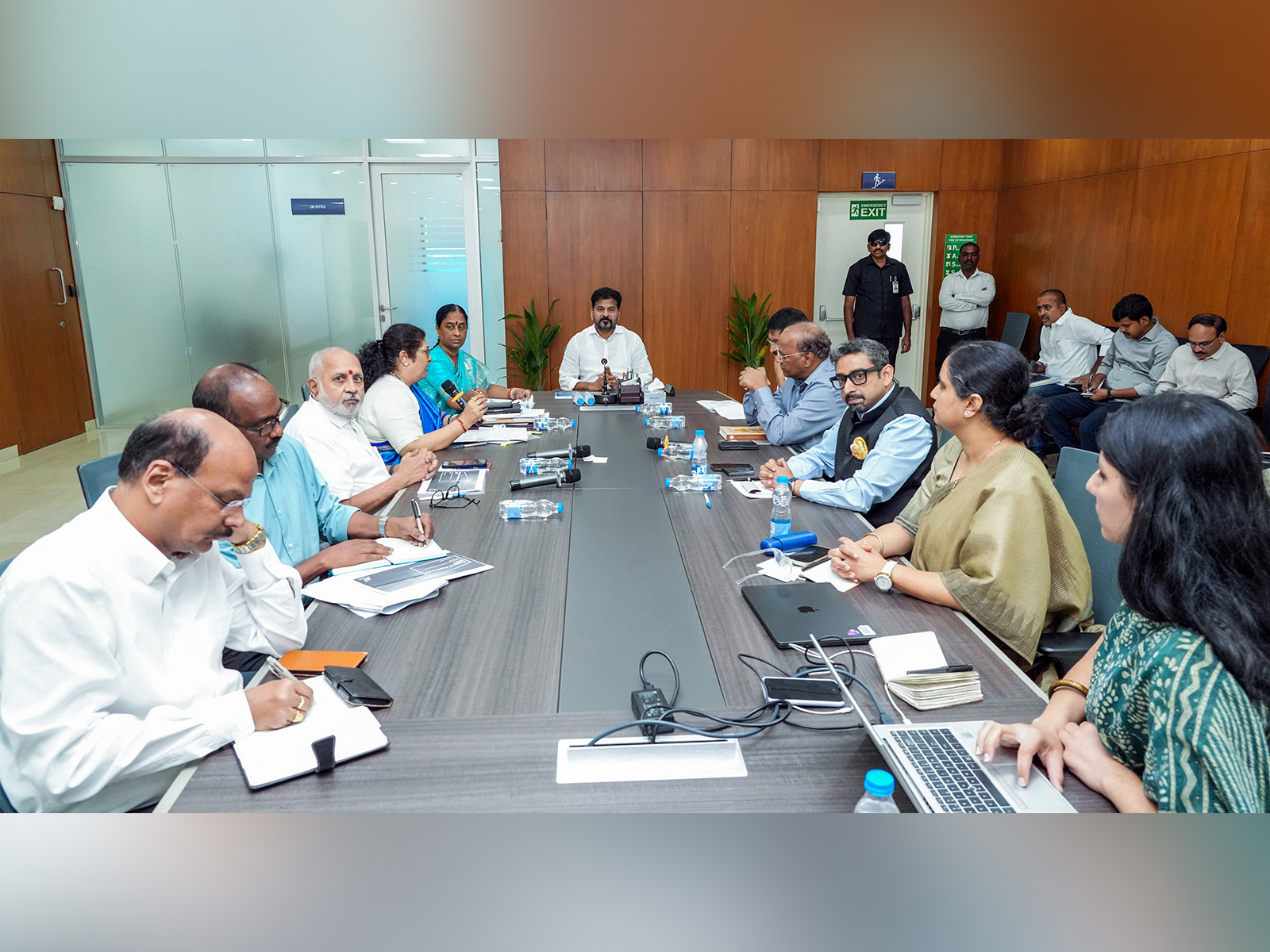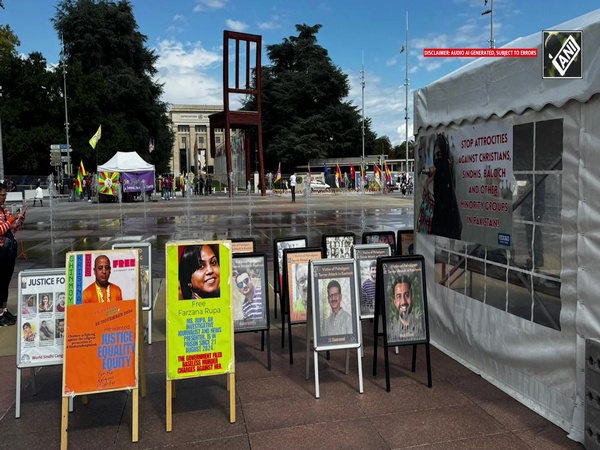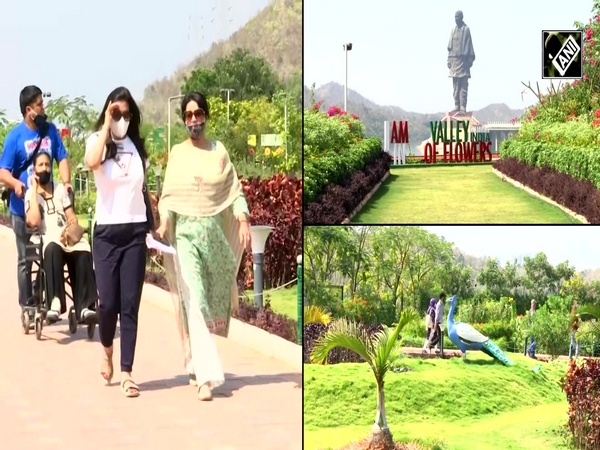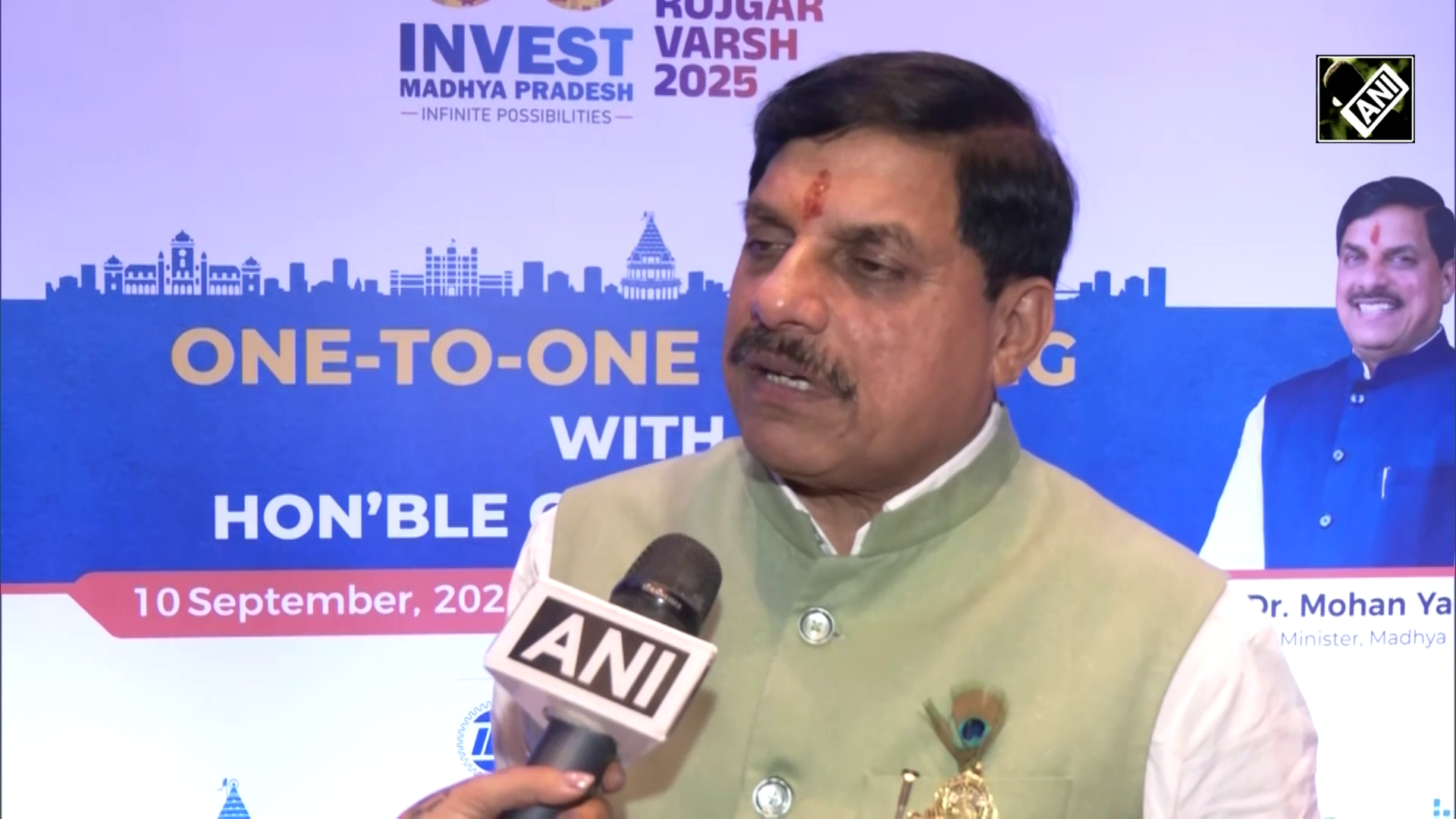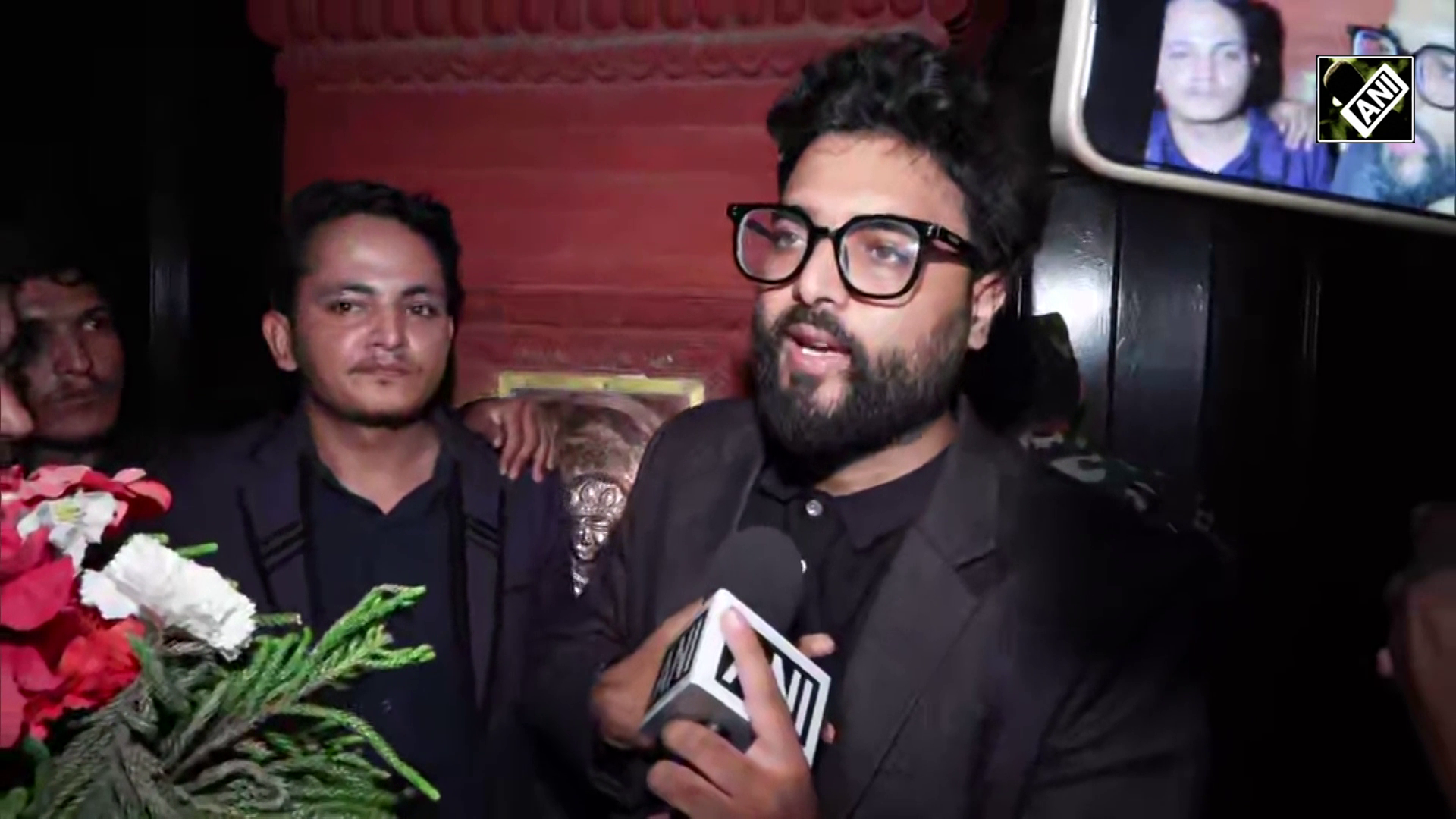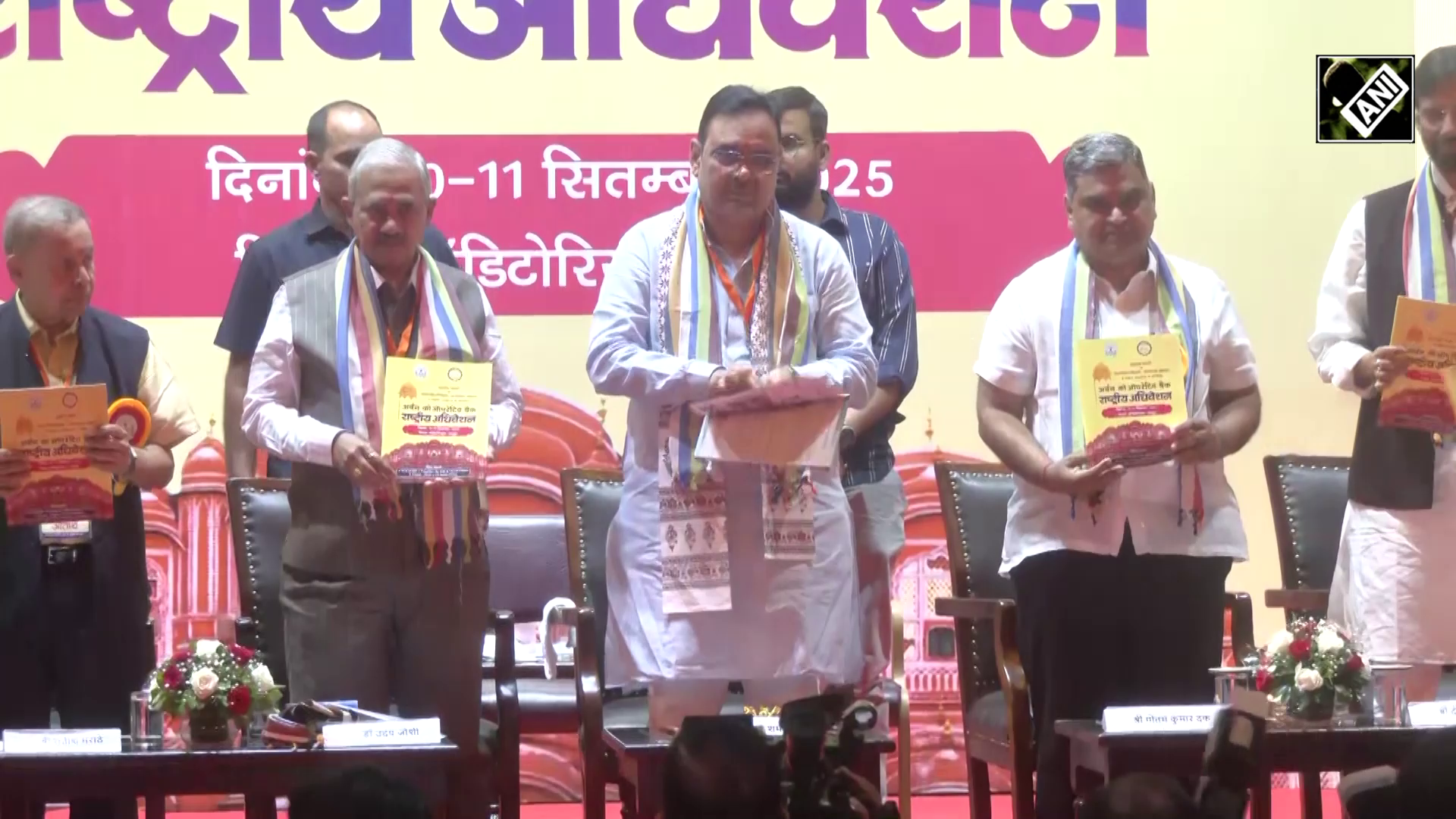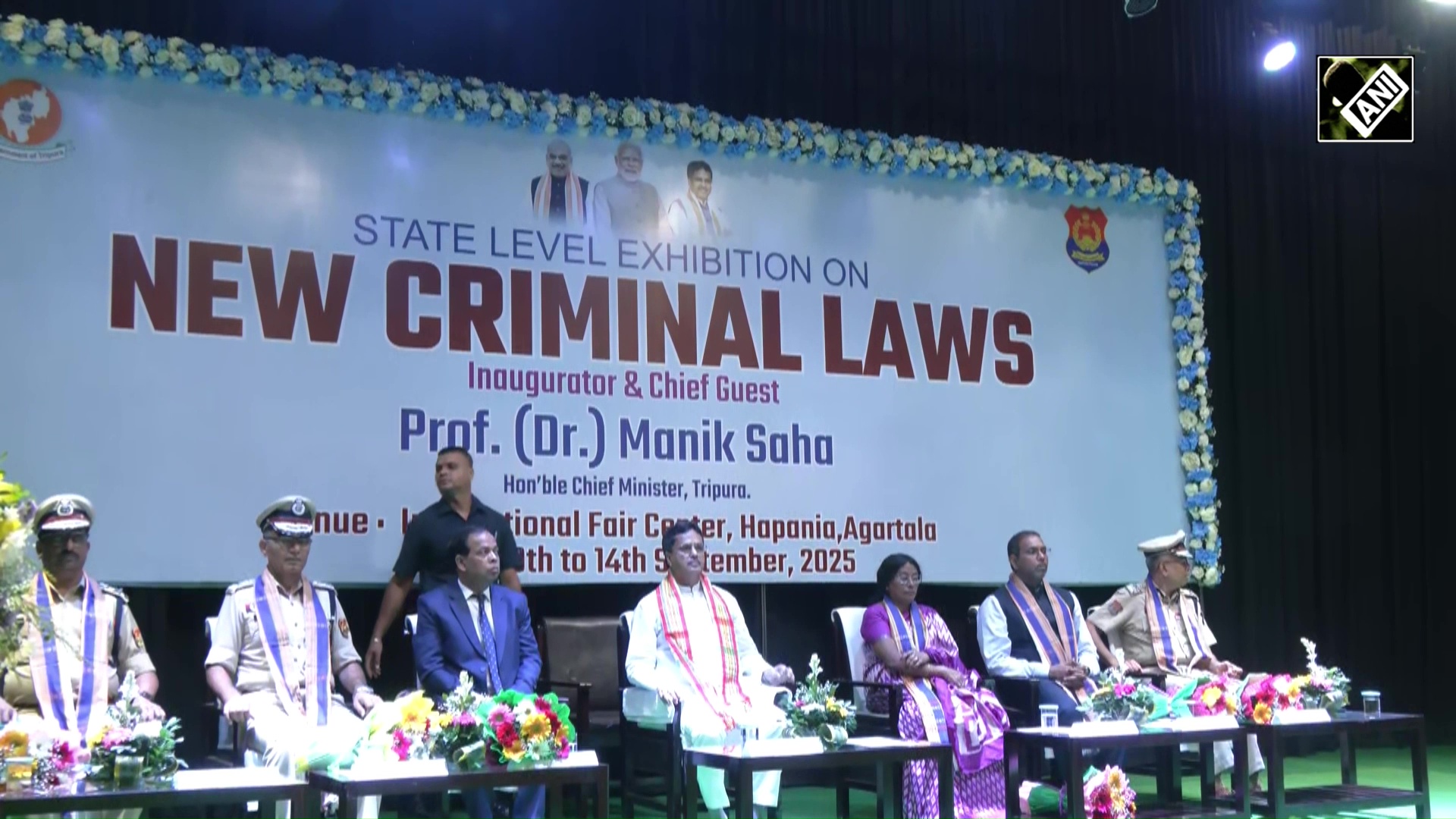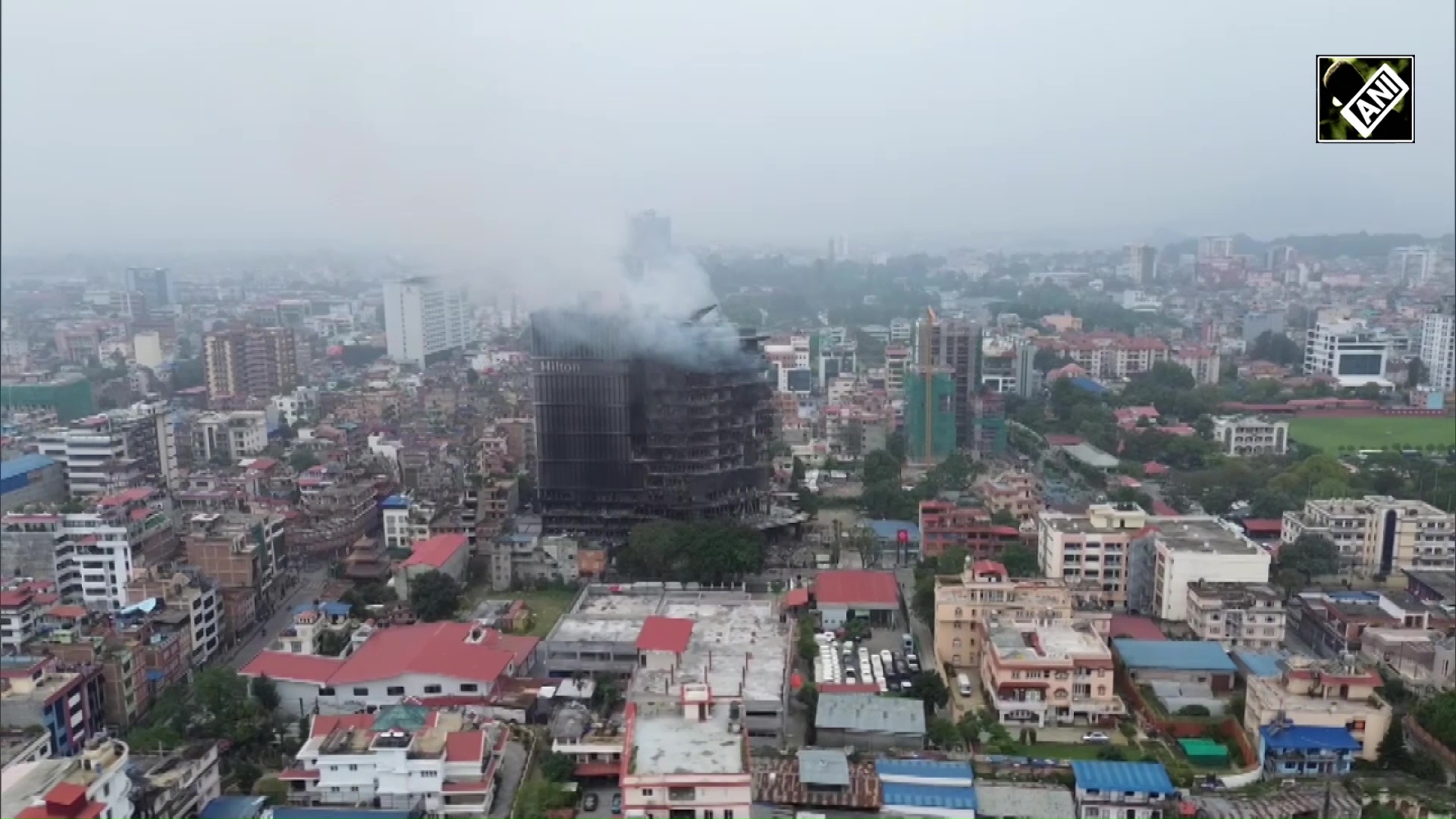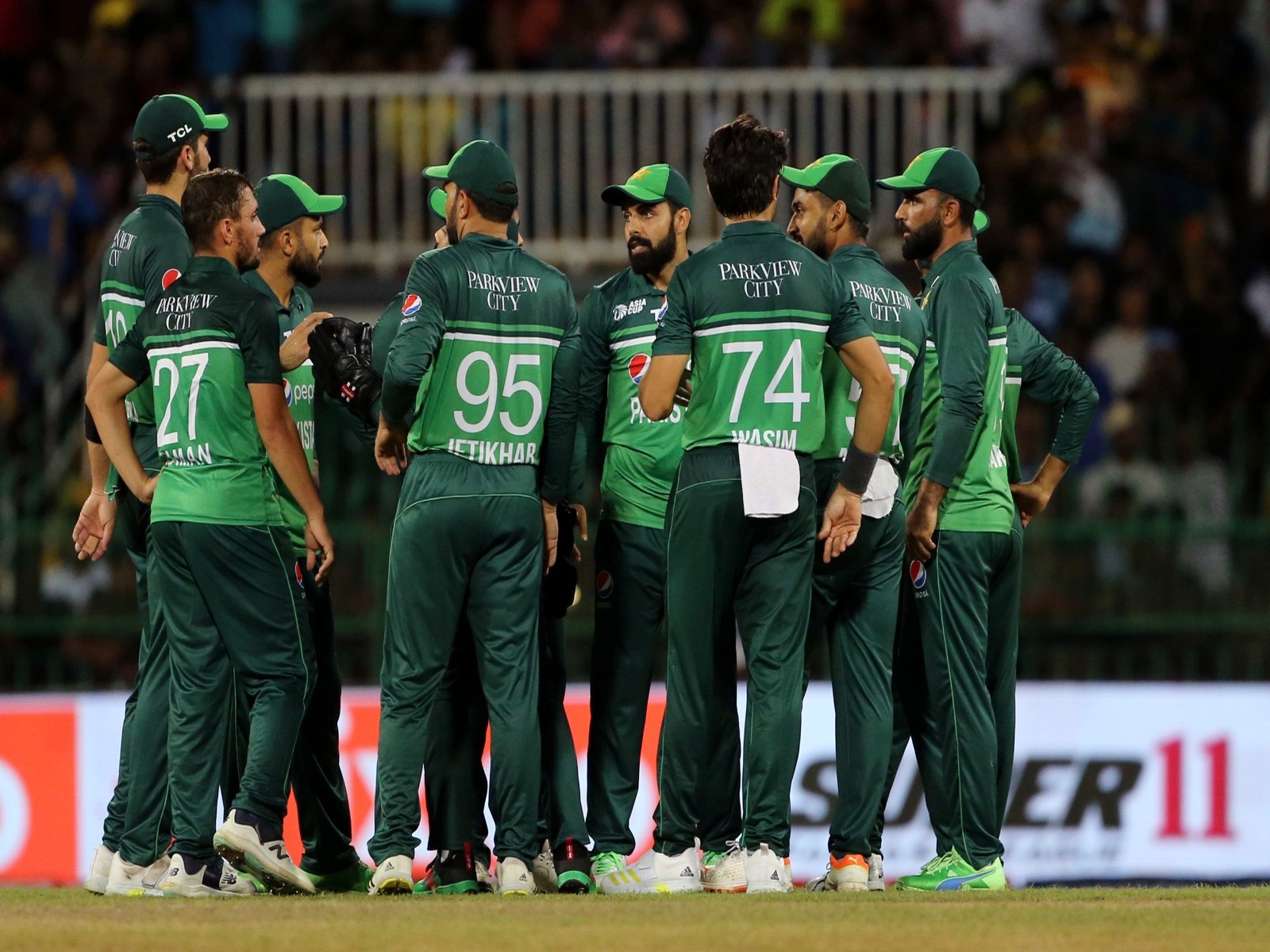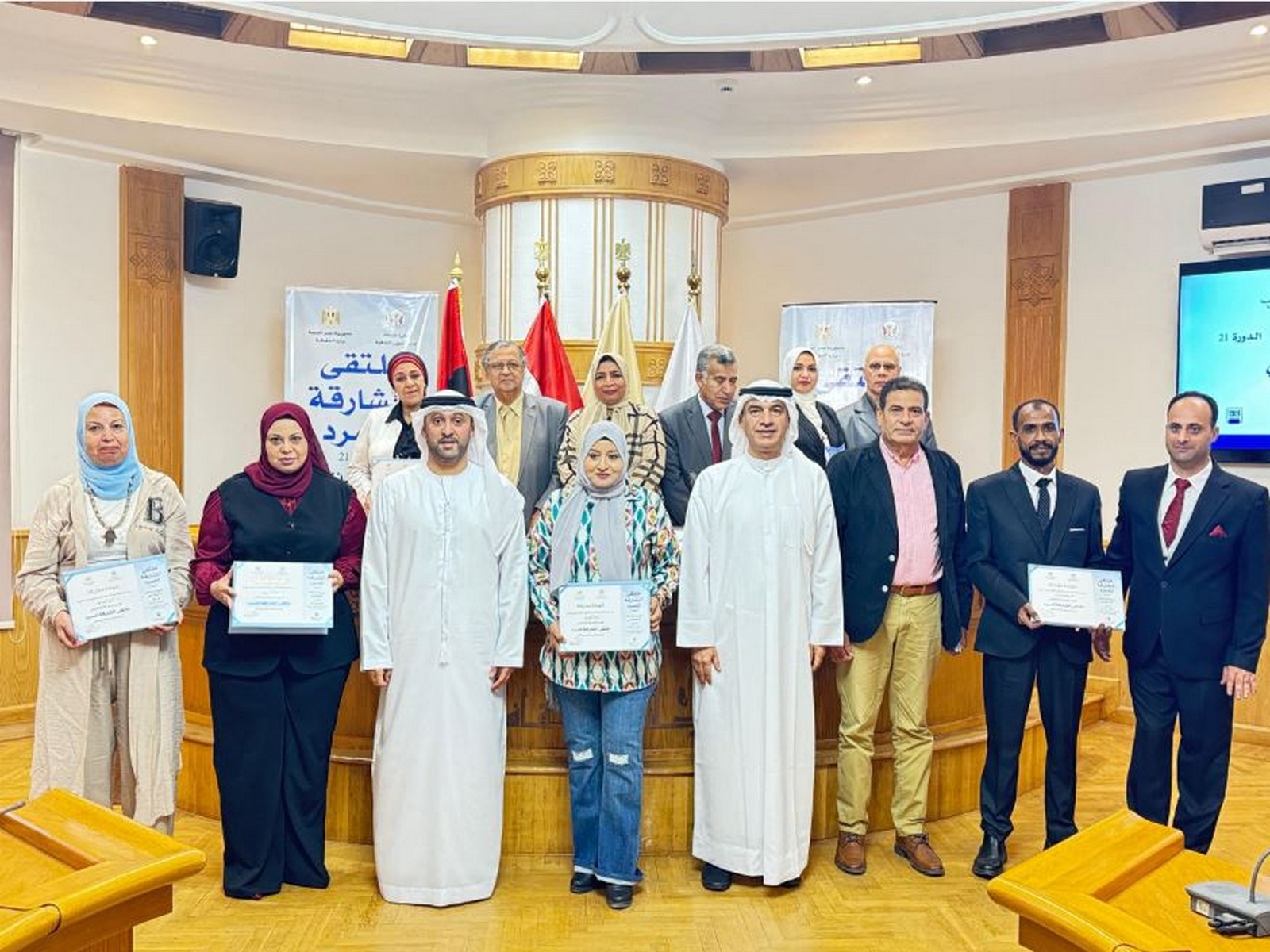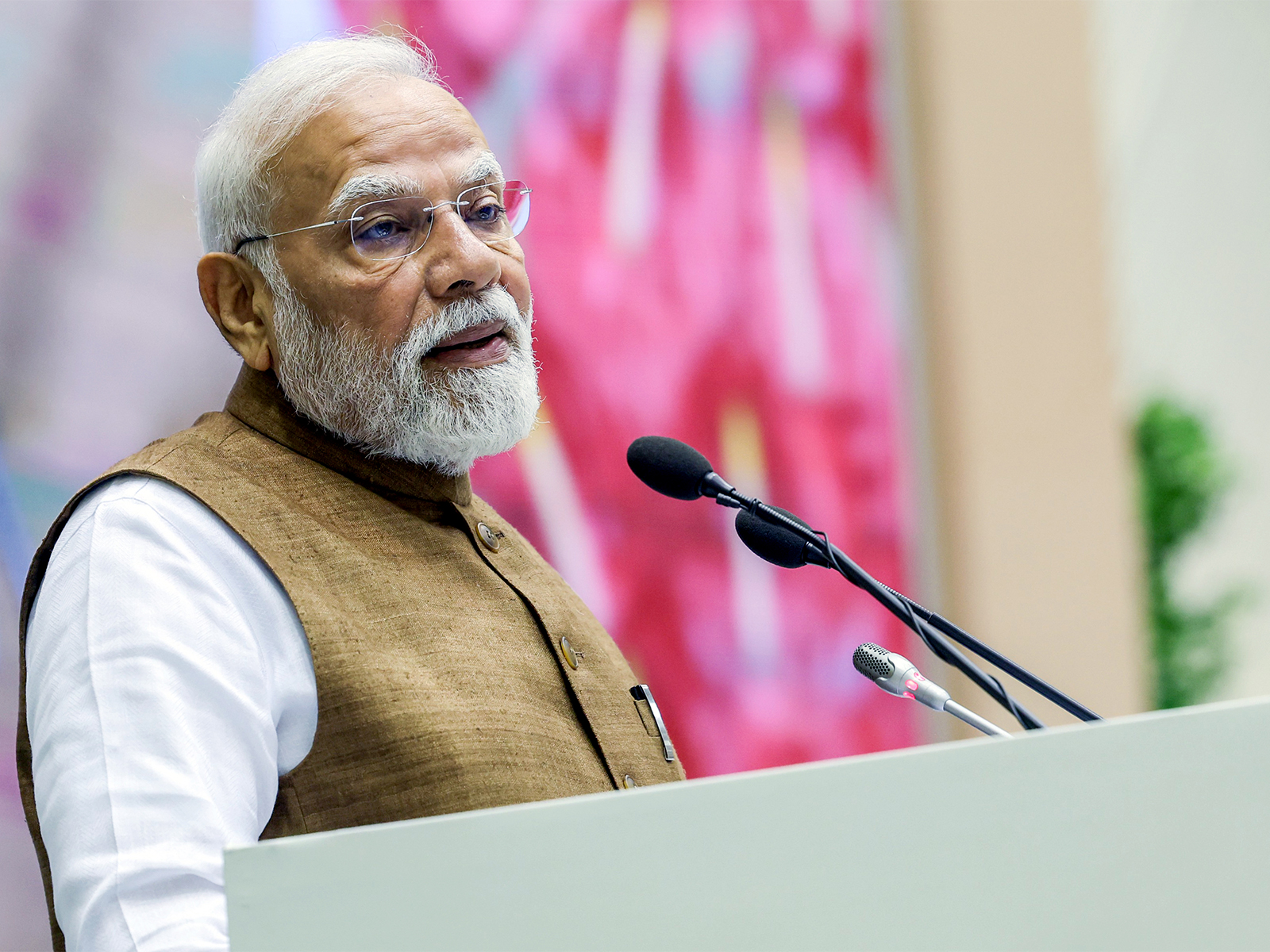
Gyan Bharatam Mission to become voice of India's culture and literature: PM Modi
Sep 12, 2025
New Delhi [India], September 12 : Prime Minister Narendra Modi on Friday emphasised that the 'Gyan Bharatam Mission' was set to become a proclamation of India's culture, literature, and consciousness at the International Conference on Gyan Bharatam in Vigyan Bhawan, New Delhi.
Addressing the gathering on the occasion, the Prime Minister remarked that Vigyan Bhavan is today witnessing the resurgence of India's golden past. He highlighted that only a few days ago, he had announced the Gyan Bharatam Mission and within such a short span, the Gyan Bharatam International Conference was being organised.
PM Modi informed that the portal associated with the mission has also been launched. Stating that this is not a government or academic event, the Prime Minister emphasised that the Gyan Bharatam Mission is set to become a proclamation of India's culture, literature, and consciousness.
He reflected on the contemplative legacy of thousands of generations. He acknowledged the wisdom and research of India's great sages, acharyas, and scholars, underlining India's knowledge, traditions and scientific heritage.
PM Modi stated that through the Gyan Bharatam Mission, these legacies are being digitised. He extended congratulations to all citizens for this mission and conveyed his best wishes to the entire Gyan Bharatam team and the Ministry of Culture.
Stating that viewing a manuscript feels akin to time travel, Modi reflected on the vast difference between present-day conditions and those of the past. He noted that today, with the help of keyboards, we are able to write extensively with the convenience of delete and correction options and through printers, thousands of copies of a single page can be produced.
Urging the audience to imagine the world of centuries ago, the Prime Minister emphasised that modern material resources were not available at that time, and our ancestors had to rely solely on intellectual resources. He highlighted the meticulous attention required while writing each letter.
Underlining the immense effort involved in creating each scripture, Modi noted that even in those times, the people of India built grand libraries that became global centers of knowledge. The Prime Minister affirmed that India still possesses the world's largest manuscript collection and emphasised that there are approximately one crore manuscripts in India's possession.
Highlighting that millions of manuscripts were destroyed and lost in the cruel tides of history, PM Modi emphasised that the surviving manuscripts stand as testimony to the profound dedication of our ancestors towards knowledge, science, reading, and learning.
Noting the fragility of scriptures written on bhojpatra and palm leaves and the threat of metal corrosion in words inscribed on copper plates, the Prime Minister remarked that despite these challenges, our ancestors revered words as divine and served them with the spirit of 'Akshar Brahma Bhav'.
He stated that, generation after generation, families have preserved these scriptures and manuscripts with care, underlining the immense reverence for knowledge.
PM Modi acknowledged the concern for future generations, emphasising the sense of responsibility towards society. He affirmed the spirit of devotion towards the nation, stating that a greater example of such commitment could be found.
"India's knowledge tradition remains rich to this day because it is built on four foundational pillars of Preservation, Innovation, Addition, and Adaptation", exclaimed the Prime Minister. Elaborating on the first pillar--Preservation, PM Modi noted that the Vedas, India's most ancient scriptures, are considered the foundation of Indian culture. Affirming that the Vedas are supreme, he explained that earlier, the Vedas were passed down to the next generation through oral tradition--'Shruti'. He emphasised that for thousands of years, the Vedas were preserved with complete authenticity and without error.
The Prime Minister then spoke about the second pillar--Innovation, highlighting that India continuously innovated in Ayurveda, Vastu Shastra, Jyotish, and metallurgy. He remarked that each generation advanced beyond the previous one, making ancient knowledge more scientific. He cited texts like Surya Siddhanta and Varahamihira Samhita as examples of continuous scholarly contributions and the addition of new knowledge.
Discussing the third pillar--Addition, PM Modi explained that every generation not only preserves old knowledge but also contributes new insights. He cited the example that after the original Valmiki Ramayana, many other Ramayanas were composed. He mentioned texts like Ramcharitmanas that emerged from this tradition, while commentaries were written on the Vedas and Upanishads. He highlighted that Indian acharyas offered interpretations such as Dvaita and Advaita.
Deliberating on the fourth pillar of India's knowledge tradition - adaptation, the Prime Minister explained that over time, India engaged in self-introspection and made necessary changes. He emphasised the importance placed on discussions and the continuation of the tradition of Shastrarth. He noted that society discarded outdated ideas and embraced new ones.
PM Modi remarked that during the medieval period, when various social evils emerged, eminent figures arose who awakened societal consciousness. He highlighted that these individuals preserved and safeguarded India's intellectual heritage.
"Unlike modern notions of nationhood, India possesses a distinct cultural identity, its own consciousness, and its own soul", stated the Prime Minister, emphasising that India's history is not merely a record of dynastic victories and defeats. He noted that while the geography of princely states and kingdoms has changed over time, India has remained intact from the Himalayas to the Indian Ocean.
He affirmed that India is a living stream, shaped by its thoughts, ideals, and values. "India's ancient manuscripts reflect the continuous flow of this civilizational journey", exclaimed PM Modi, stating that these manuscripts are also declarations of unity in diversity. He informed that manuscripts exist in nearly 80 languages across the country.
He listed Sanskrit, Prakrit, Assamese, Bengali, Kannada, Kashmiri, Konkani, Maithili, Malayalam, and Marathi among the many languages in which India's vast ocean of knowledge is preserved. Highlighting that the Gilgit manuscripts provide authentic historical insights into Kashmir, the Prime Minister noted that the manuscript of Kautilya's Arthashastra reveals India's deep understanding of political science and economics.
He stated that Acharya Bhadrabahu's Kalpasutra manuscript safeguards the ancient wisdom of Jainism and the manuscripts from Sarnath contain the teachings of Lord Buddha. He further emphasised that manuscripts like Rasamanjari and Geetgovind have preserved the diverse hues of devotion, beauty, and literature.
"India's manuscripts contain the footprints of humanity's entire developmental journey", emphasised PM Modi, stating that these manuscripts encompass philosophy and science. He noted that they include medicine and metaphysics and also preserve knowledge of art, astronomy, and architecture.
The Prime Minister remarked that countless examples can be cited, highlighting that from mathematics to binary-based computer science, the foundation of modern science rests on the concept of zero.
Affirming that the discovery of zero took place in India, PM Modi stated that the Bakhshali manuscript contains evidence of the ancient use of zero and mathematical formulas. He noted that Yashomitra's Bower manuscript provides insights into centuries-old medical science.
The Prime Minister emphasised that manuscripts of texts like Charaka Samhita and Sushruta Samhita have preserved the knowledge of Ayurveda to this day. He added that the Sulva Sutra offers ancient geometrical knowledge, while the Krishi Parashara provides information on traditional agricultural knowledge. He further noted that manuscripts of texts like the Natya Shastra help us understand the journey of human emotional development.
Stating that every nation presents its historical assets to the world as symbols of civilizational greatness, the Prime Minister noted that countries preserve even a single manuscript or artefact as a national treasure. He emphasised that India possesses an immense wealth of manuscripts, which are a matter of national pride.
The Prime Minister shared a personal experience from his visit to Kuwait, where he met a gentleman who possessed an extensive collection of historical documents detailing India's ancient maritime trade routes. He remarked that the gentleman approached him with great pride, presenting materials that showcased how India conducted sea-based trade centuries ago.
The Prime Minister noted that such collections reflect the depth of India's global engagement and the respect it commands across borders. He emphasised the need to preserve and integrate these scattered treasures into the broader national effort. He affirmed that these records--wherever they may be found--must be documented, digitised, and celebrated as part of India's civilizational heritage.
"India has earned the trust of the world. Today, nations view India as the right place to safeguard and honour cultural heritage", stated PM Modi. He remarked that earlier, only a few stolen Indian idols were returned. But now, hundreds of ancient idols are being repatriated. He emphasised that these returns are not driven by sentiment or sympathy, but by confidence--confidence that India will preserve and elevate their cultural value with dignity.
\The Prime Minister reiterated that India has become a trusted custodian of heritage in the eyes of the world. He shared a personal experience from his visit to Mongolia, where he interacted with Buddhist monks and observed their rich manuscript collection. He recounted requesting permission to work on those manuscripts, which were then brought to India, digitised, and respectfully returned. He affirmed that those manuscripts have now become a treasured legacy for the Mongolian people.
Affirming that India is now preparing to present this heritage to the world with pride, PM Modi remarked that the Gyan Bharatam Mission is a vital part of this grand initiative.
The Prime Minister highlighted that numerous institutions across the country are working with the government in the spirit of public participation. He named Kashi Nagari Pracharini Sabha, the Asiatic Society of Kolkata, 'Dharohar' of Udaipur, Acharya PM Kailashsuri Gyanmandir in Koba, Gujarat, Patanjali in Haridwar, Bhandarkar Oriental Research Institute in Pune, and Saraswati Mahal Library in Thanjavur. He informed that with the support of hundreds of such institutions, more than ten lakh manuscripts have been digitised so far.
PM Modi acknowledged that many citizens have come forward to make their family heritage available for the nation, and expressed his gratitude to all these institutions and to every such citizen.
The Prime Minister stated that India has never measured its knowledge by monetary power. Quoting the ancient wisdom of Indian sages that knowledge is the greatest gift, he emphasised that in ancient times, the people of India donated manuscripts with a spirit of generosity.
PM Modi noted that when the Chinese traveller Hiuen Tsang visited India, he carried back more than six hundred manuscripts. He added that many Indian manuscripts reached Japan via China.
Highlighting that in the 7th century, these manuscripts were preserved in Japan's Horyu-ji Monastery as the national capital, the Prime Minister remarked that even today, many countries around the world house India's ancient manuscripts. He further stated that under the Gyan Bharatam Mission, India will also strive to unify this shared heritage of humanity.
Mentioning that India initiated this effort during the cultural dialogue of the G-20, the Prime Minister stressed that countries with centuries-old cultural ties to India are being actively engaged in this campaign. He informed that reprinted volumes of the Mongolian Kanjur were gifted to the Ambassador of Mongolia. He added that in 2022, these 108 volumes were also distributed to monasteries in Mongolia and Russia.
PM Modi noted that India has signed MoUs with universities in Thailand and Vietnam. He stated that scholars from these countries are being trained to digitise ancient manuscripts. Highlighting that as a result of these efforts, several manuscripts in Pali, Lanna, and Cham languages have been digitised, PM Modi affirmed that through the Gyan Bharatam Mission, India will further expand these initiatives.
Stating that the Gyan Bharatam Mission will also address a major challenge, the Prime Minister highlighted that numerous elements of India's traditional knowledge systems--used for centuries--are often copied and patented by others. He emphasised the need to curb this form of piracy, adding that digital manuscripts will accelerate efforts to counter such misuse and help regulate intellectual piracy.
PM Modi affirmed that the world will gain access to authentic and original sources across various subjects.
Pointing out another critical dimension of the Gyan Bharatam Mission and its role in unlocking new domains of research and innovation, PM Modi noted that the global cultural and creative industry is valued at approximately $2.5 trillion. He emphasised that digitised manuscripts will feed into the value chains of this industry.
The Prime Minister remarked that these crores of manuscripts and the ancient knowledge embedded within them will serve as a vast data bank, affirming that this will give a fresh push to data-driven innovation. Stating that new opportunities will emerge for youth in the tech field, PM Modi added that as manuscript digitisation progresses, new possibilities will also open up for academic research.
Noting that to study these digitised manuscripts effectively, the use of advanced technologies like Artificial Intelligence must be increased, the Prime Minister emphasised that with the help of AI, ancient manuscripts can be understood in greater depth and analysed more comprehensively.
He remarked that AI can also assist in presenting the knowledge contained in these manuscripts to the world in an authentic and impactful manner.
Appealing to all youth of the nation to come forward and actively participate in the Gyan Bharatam Mission, PM Modi emphasised the importance of exploring the past through technology. He stated that efforts must be made to make this knowledge accessible to humanity on the basis of evidence.
The Prime Minister also urged universities and institutes across the country to take new initiatives in this direction. Noting that the entire nation is moving forward with the spirit of Swadeshi and the resolve of Atmanirbhar Bharat, PM Modi affirmed that this mission is an extension of that national spirit. He stated that India must transform its heritage into a symbol of its strength.
The Prime Minister concluded by expressing confidence that the Gyan Bharatam Mission will mark the beginning of a new chapter for the future.
Union Ministers PM Gajendra Singh Shekhawat and PM Rao Inderjit Singh were present among other dignitaries at the event.
The International Conference on Gyan Bharatam is being held from 11th to 13th September under the theme "Reclaiming India's Knowledge Legacy through Manuscript Heritage". The Conference will bring together leading scholars, conservationists, technologists, and policy experts to deliberate on pathways for revitalising India's unparalleled manuscript wealth, and to place it at the heart of a global knowledge dialogue.
It will also feature an exhibition showcasing rare manuscripts and scholarly presentations on critical areas, including manuscript conservation, digitisation technologies, metadata standards, legal frameworks, cultural diplomacy, and the decipherment of ancient scripts.

